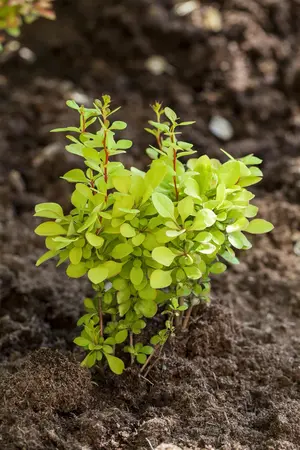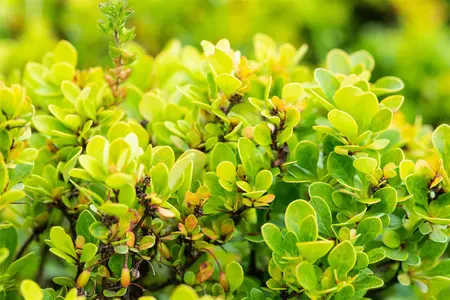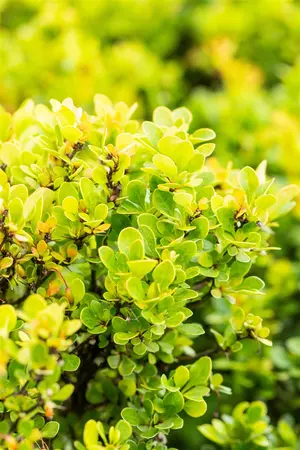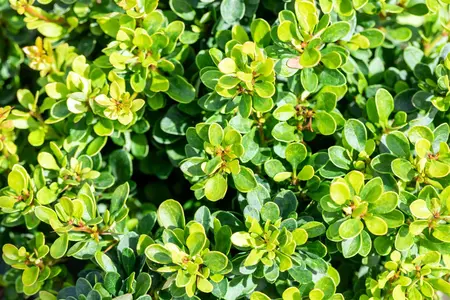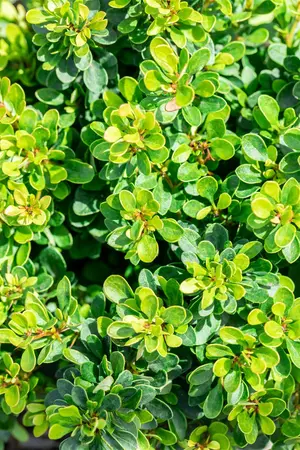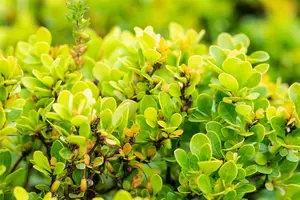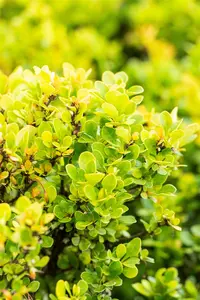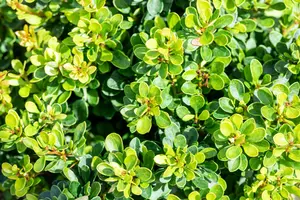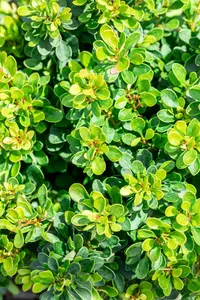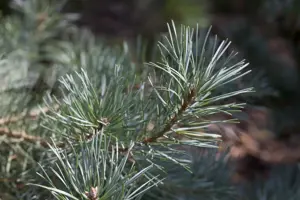Berberis thunb. 'Kobold' - P9
Berberis thunb. 'Kobold' - P9
Description
The Japanese barberry 'Kobold' (Berberis thunbergii) is a compact, spherical dwarf shrub with decorative, pink-red, elongated fruits that stay on for a very long time. It produces yellow flowers in May. The Japanese barberry 'Kobold' also has egg-shaped, dark green leaves. The red shoots are also an interesting sight. In a sunny to semi-shady location with well-drained, humus-rich, acidic soil, it usually reaches a height of approx. 60 cm and grows to a width of approx. 80 cm.
Bulletpoints
* Fruiting ornament
* Suitable for flowering hedges
* the blossoms are highly favoured by bees, bumblebees and hoverflies
* attractive yellow, scarlet-red autumn colouring
* tolerates pruning
* red shoots
* easy to care for
* drought-resistant, resistant to urban climates, wind-resistant
Leaves
The deciduous leaves of the Japanese barberry 'Kobold' are dark green, ovate and alternate. They are about 1 - 2 cm in size. Red shoots. Japanese barberry 'Kobold' turns bright yellow to scarlet red in autumn.
Bark
Red-brown bark makes this plant an eye-catcher in any garden.
Spread
China to Japan.
Frost hardiness
The Japanese barberry 'Kobold' has good frost hardiness.
Growth
Japanese barberry 'Kobold' is a compact and spherical dwarf shrub. It usually reaches a height of 40 - 60 cm and is approx. 40 - 80 cm wide. It usually grows 10 - 15 cm per year.
Water
The plant has a medium water requirement.
Pruning
This plant is tolerant of pruning.
Location
Preferred location in a sunny to semi-shady position.
Soil
Berberis thunbergii 'Kobold' thrives on all acidic, humus-rich and sufficiently moist soils.
Planting time
Container plants can be planted all year round, except when the ground is frozen and in summer heat (over 30°C).
Tasks
- Mulching: In the period from March to April.
Care
A slow-release fertiliser can be used in spring. This releases the nutrients slowly and continuously so that the plant is evenly supplied over a longer period of time.
Flower
The yellow flowers appear in May.
Fruit
The pink-red, elongated fruits of Berberis thunbergii 'Kobold' are particularly decorative. These appear from September. Very long-lasting.
Interesting facts
Plant or parts of the plant are poisonous.
Use
Ornamental shrub, bee pasture, hedge
Shoots
The shoots of Berberis thunbergii 'Kobold' are spiny.
Root
Berberis thunbergii 'Kobold' is a shallow-rooted plant and, depending on the soil, forms densely branched roots.
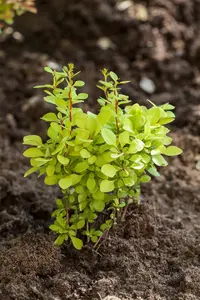
- Article number600
-
EAN codeBETKOBOL-0P9
- Latin nameBerberis thunb. 'Kobold'
- catalogLandscape shop

